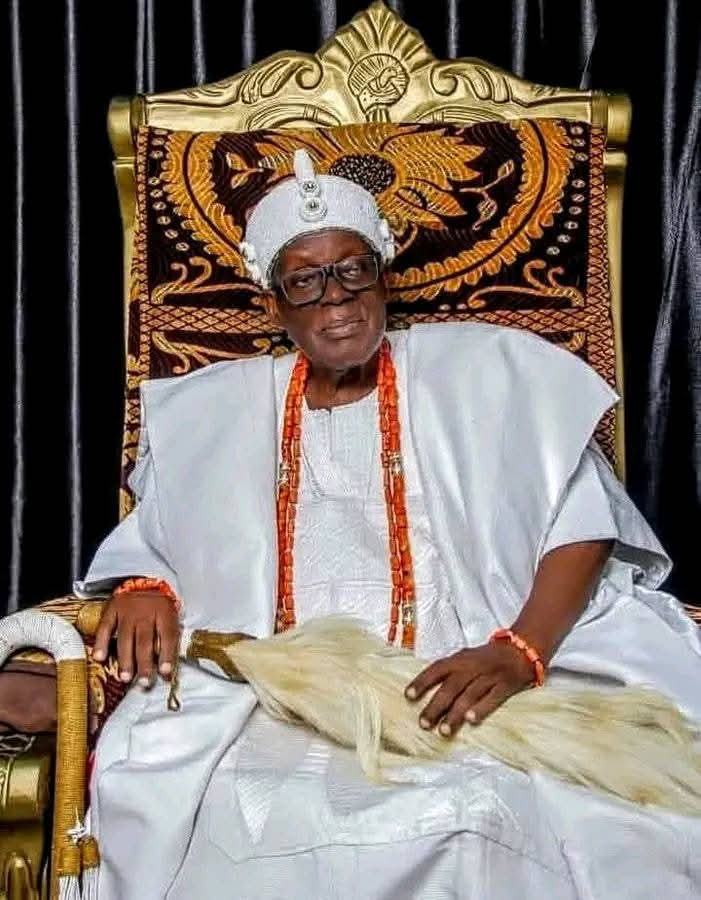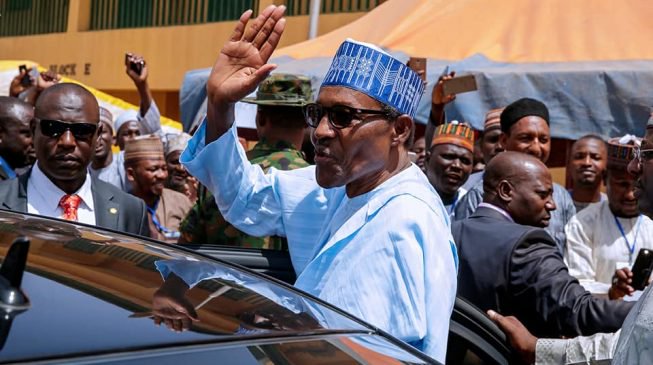“There is no way any part of Nigeria will secede without a civil war.” – Emmanuel Yawe, Spokesman, Arewa Consultative Forum.
Dr. Augusta Anosike of the Nigerian Indigenous National Alliance for Self Determination has released a ten-minute attention-grabbing viral video that gave an idiot guide to self-determination. Even the avowedly irritational must yield to reason in the magisterial manner she delineated the necessity and urgency of self-determination in Nigeria. Before we get bogged down by her brilliant argument, let us travel with self-determination across other regions of the world.
The story of the Tamil and Sinhalese of Sri Lanka bears similarity with Ndigbo and Yoruba struggle for self-determination. In 1956 the Sinhala Only Act mandated Sinhala as the sole official language in Sri Lanka.
Tamil language was excluded, there was widespread government supported policy of settling Sinhalese on Tamil lands; Tamil were denied jobs, they were denied university places due to a quota system that favoured the Sinhalese, there was ethnic genocide and mass brutalisation and murder of the Tamil by the Sinhalese-led Police, Army, and the militant monks.
Laws protecting rights of racial and religious minorities were abandoned and Buddhism was made the constitutional religion of Sri Lanka. The widespread injustice became a symbol of minority oppression and a justification for the Tamil to demand a separate nation state which resulted in decades of civil war. By 1975, Tamil militancy increased with the birth of the feared Tamil Tigers, that is, the Liberation Tigers of Tamil Eelam, led by Velupillai Prabhakaran, who considered himself a Marxist and follower of Che Guevara.
On April 22, 2000 LTTE forces surprisingly overran Sri Lanka’s Elephant Pass military base in Jaffna. Over 1,000 troops were killed, and huge quantities of arms and ammunitions were taken. On July 24, 2001, the LTTE again stunned the nation and the world when it attacked the only international airport and the nearby military base. The LTTE Black Tiger suicide squad infiltrated Katunayake air base. After destroying electricity transformers to plunge the base in darkness they cut through the barbed wire surrounding the base to begin their assault. Using rocket propelled grenades, anti-tank weapons and assault rifles, the militants attacked the air force planes.
They were not able to attack the aircraft in the hangars but did destroy eight military aircraft on the tarmac: three Nanchange K-8 trainer aircraft, one Mil Mi-17 helicopter, one Mil Mi-24 helicopter, two LAI Kfir fighter jets, and a Mig-27. Five K-8s and one MiG-27 were also damaged. A total of 26 aircraft were either damaged or destroyed in the attack. There was a ceasefire, but it was not working. By May 11, 2006, Tamil Sea Tigers attacked a navy convoy and promptly the European Union placed the Tigers on its terrorist list.
In May 2010, a New York based lawyer, Visvanathan Rudrakumaran, formed a Transnational Government of Tamil Eelam intending to use soft power to reach its end. Transnational Government of Tamil Eelam based in the diaspora continues to claim that they represent the Sri Lankan Tamils. The Tamil dream of a nationhood through self-determination was rumbled by the West when the Tigers, the armed wing of the Tamil people was branded a terrorist organisation.
The issue of Kashmir’s separatism has been in limbo. Kashmir dispute has thus remained troublingly infantile and deadlocked for years. The re-mushrooming of the separatist movement in Kashmir in 1989 and the subsequent creation of a political vacuum has allowed the insidious infiltration of distrust and suspicion into the relationship between Kashmir, and the two nuclear powers in the Indian subcontinent – India and Pakistan.
Like East Timor, Kashmir’s international legal status is uncertain. It is unclear whether Kashmir today exists as part of India, Pakistan, or both. Again, similarly to East Timor, the Security Council has outlined the right of self-determination to the Kashmiri people through an independent plebiscite. However, the constant threat to peace that exists in Kashmir serves as a hurdle to achieving this right. In East Timor, the Security Council pursuant to its powers under chapter VII of the UN charter authorized an International Force for East Timor (interfet) to preserve the freely expressed will of the people.
Threats to international peace are arguably greater in Kashmir than they were in East Timor. India and Pakistan have fought three wars over Kashmir, and the nuclear capabilities of both countries add to the dangers of elongating any chances for peace. The fight for a separate sovereignty by the Kashmiris has remained in suspended animation despite brutal skirmishes and UN interventions.
On 20 April 2016, shortly after assuming the presidency of Catalonia, Carles Puigdemont visited Mariano Rajoy, the then Prime Minister of Spain, and presented to him a detailed plan for a referendum organized in cooperation with the central government. Rajoy rejected the offer with barely a comment. On 11 January 2017, Puigdemont once again met with Rajoy about the issue and once again Rajoy stated that there is nothing to negotiate.
Puigdemont went ahead and organized a non-binding referendum to gauge the possible levels of support for independence from Spain. Around 90% of Catalan voters backed independence in the referendum held on 1 October 2017, even though the turnout was only 43%. There were clashes when Spanish national police tried to prevent people voting. The ruling separatists in the Catalan parliament declared independence on 27 October 2017. Madrid went after their jugular and suspended the region’s autonomy.
The Spanish government sacked the Catalan leaders, dissolved parliament, and called a snap regional election two months later. Separatist parties still won a narrow majority. Today, what is arguably the most important and powerful grassroots democratic movement ever to take place anywhere in the developed world was characterised as a meaningless caprice of a few misguided Catalanists. The dream for a Catalan homeland came to an end when a former Mayor of Girona, Carles Puigdemont, and the 130th President of Catalonia from 2016 to 2017 was removed from office by the Spanish Government following his unilateral Catalan declaration of independence.
When independence came in January 1956, Sudanese who had struggled for self-determination against British colonialism did not believe that their brothers and sisters in the Southern part of the society deserved to be free from all forms of oppression, brutality, and racial injustice. The distribution of political power in the new state confirmed those fears: British colonial power was replaced with political power based in the northern parts of the country. It had been agreed that after six years there would be a referendum where the peoples of South Sudan would decide whether to be part of the larger Sudan or seek independence. That agreement was breached, and Southern Sudanese mutiny broke out and spread quickly, turning into a rebellion that lasted until 1972. This rebellion, known as “Anya-nya,” mobilized the peoples of the South, regardless of ethnicity and religion.
The second mutiny in 1983 by Colonel Dr. John Garang, a Southern Sudanese, led to the civil war that lasted until the Comprehensive Peace Agreement was reached in 2005. Garang fought for a secular and democratic federal Sudan. In the peace agreement of 2005 between the Sudanese government and the Sudanese People Liberation Army/Movement (SPLA/M), Southern Sudan would be governed by the SPLA/M for a transitional period of five years, after which its citizens would decide in a referendum whether to secede from or remain party of a united Sudan.
In the 2010 referendum, Southern Sudanese overwhelmingly (99%) chose to go for a separate state. In July 2011, Africa’s newest nation was born with General Salva Kiir Mayerdit as its first elected president. John Garang died in a plane crash on July 30, 2005 (on his way back from Uganda), and did not live to see his vision of a separate Sudan. Today, South Sudan is enjoying its independence, but it was not without bloodshed. The 17-year war between the North and South was mainly a militarist campaign against the central government of Sudan. The religious and militaristic nature of the Bashir regime in Khartoum ensured that the struggles in the Sudan were based on the politicization of race, religion, and ethnicity just as we currently have in Nigeria under President Buhari.
Since last week, Israel has continued its aerial bombardment of Gaza in the Palestine territory vowing not to stop until all is quiet. The Israeli defence minister Benny Gantz talked tough on a hapless and trapped Palestinians who had endured Israeli occupation since 1967. Israel had browbeaten the world, manipulated anti-Arab sentiment and attacked its critics to justify its escalating occupation. It is possible that this ongoing escalation of barbarism may become a tipping point in world public opinion to oppose Israel ethnocide and support the right of self-determination of the Palestinian people. Discrediting and dismantling the Israeli ideological arsenal and getting the world to arraign Israel for human right violation.
Unfortunately, the US is the greatest defender of Israel. Israel is the largest cumulative recipient of US foreign aid since World War II, $146 billion to date. The 2020 federal budget includes $3.3 billion in direct military aid and an additional $506 million for research, development and production of anti-rocket and missile defence systems, most of which are US-Israeli joint projects. Annual Foreign Military Assistance grants to Israel represent 23 to 25% of the overall Israeli defence budget.
Whither the two states solution? The Palestinians, having been involved in the “peace process” since Oslo in 1990, have come to realize that “peace” has been an Orwellian term designed and used to disguise Israeli war by other means, in the von Clausewitz-ian sense. They have had to choose between slow strangulation versus violent elimination. The death of the Two-State Solution was part of a calculated agenda from the very start of the Zionist project to capture, de-populate and settle Jews on ALL the land of Palestine.
Zionism’s early generation of founders always envisioned the large-scale removal of the Arab population, and the settlement of their own descendants in land belonging to others–you can read it in their diaries and letters, in their unguarded moments when they are talking among themselves. Abraham Herschel, Vladmir Jabotinsky, Ben Gurion, Golda Meir–they all spoke privately of what they understood: that all of Palestine would be theirs, and that it would be a state for the Jews alone. This has not changed. This is a ringing echo of Uthman Dan Fodio’s Southern land grab sentiment now being pursued by his progeny – President Muhammed Buhari across Nigeria.
In its resolution after resolution, the General Assembly had often reaffirmed the right of the Palestinian people to self-determination, including the right to their independent State of Palestine and urged all States and the specialized agencies and organizations of the United Nations system to continue to support and assist the Palestinian people in the early realization of their right to self-determination. The latest resolution by the Human Rights Council on 24 March 2021 yet again adopted the Right of the Palestinian people to self-determination. Till date the dream of a Two State Solution is still in limbo.
In the case of Southern Cameroon in 1961, Aureliu Cristescu, a Rapporteur of the UN Sub-Commission on Prevention of Discrimination and Protection of Minorities, states that: “The right of secession unquestionably exists, however, in a special, but especially important case: that of peoples, territories and entities subjugated in violation of international law. In such cases, the peoples have the right to regain their freedom and constitute themselves independent sovereign States.” Other commentators have taken a similar view that the right of secession is available, as a last resort, at least where a people is prevented from a meaningful exercise of the right of self-determination internally.
In Nigeria, the strident and emotional call for self-determination of the nationalities is becoming volatile. Except we are dunces, there are workable alternatives to our forced unity. Nigerians merely bond together for the sake of survival but tribalism sits at the centre of our heart and dictates our deepest actions. Consider the virus of hatred from Fulani against Yoruba and Ndigbo. Consider the deepest agitation of the Boko Haram. The Biafran. The Yoruba Nation. The Niger Deltans. It is one direction: separate destiny!
The rising cry for autonomy, dissolution, separateness, or independence is our best hope of meeting the developmental aspirations of our people. Our collective agitation for self-determination is the answer to Abuja’s aloofness, remoteness, and disconnection from the people. There is an ongoing crisis of political disengagement in an unwieldy federal structure.
Therefore, self-determination of the nationalities is the politics of the future and the cure for the haemorrhaging of our society. For the Yoruba, they have staked all on getting their Yoruba nation. One Nigeria that encourages banditry, injustice, Fulani herders killing, insecurity, unemployment, Fulani nepotism, Islamisation agenda, herd privileges and corruption is as doomed as a sinking Titanic. One Nigeria is a monstrous bondage. It is a monstrous injustice. It is a failed experiment that had kept us structurally deformed for the last 100 years.
However, the North with its antipathy and pontifical dogmatism have consistently warned that Nigeria would not secede without war. This may well be seen as the very Judas that may betray the possibility of a peaceful disengagement and lead us into a shooting war. No persuasive articles, intellectual arguments, or polemical essays have succeeded in dissuading Miyetti Allah, Arewa Consultative Form and Northern Elders Forum from the near-religious belief that they owe Nigeria and that its continued unity is non-negotiable.
Yoruba is currently winning the intellectual, social, cultural and grassroots battles through the able guidance of eminent Yoruba intellectuals like Professor Banji Akintoye, Chief Tola Adeniyi and Sunday Igboho with his battalion of battle-ready warriors who desire to end Fulani slavery and subjugation by any means necessary.
Right now, we have gotten to moments in our history that are tipping points—often not fully understood at the time but in retrospect—when the tide turns, and seemingly impossible revolutionary objectives become shockingly possible. Often, they are when a system exposes itself in ways that even its closest supporters find disgraceful and are unable to defend its ugliness to themselves let alone others. What would be a proportional response to Fulani who want to claim your land, enslave you, Islamise you, rape your women and kill you in a Jihadist hallucination? Whether the struggle for self-determination in Nigeria will end in future bloody war, sweat and tears time will tell.
Concluded.





